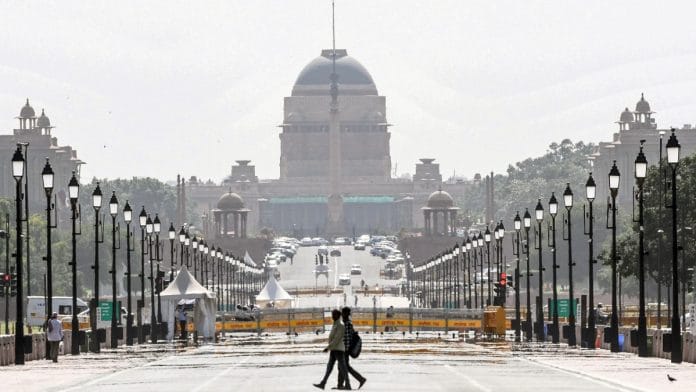Thank you dear subscribers, we are overwhelmed with your response.
Your Turn is a unique section from ThePrint featuring points of view from its subscribers. If you are a subscriber, have a point of view, please send it to us. If not, do subscribe here: https://englishdev.theprint.in/subscribe/
India is considered the largest democratic country. In practice democracy seems to stop with elections. There is a lack of democratic ethos in several vital government functions. For example, we see it in the news regularly, and sometimes may be personally as well if you venture out often enough into the streets of the country, where mobs or “powerful” persons act with impunity. If you were a victim and do not have the right “contacts” you are unlikely to get any meaningful justice. The law enforcers will not normally care unless things somehow escalate to a level it cannot be ignored anymore. But even worse, if you are from a vulnerable section either by social or economic condition and without anyone to support or back you up, don’t even bother to complain to the authorities.
There may be two ways to diagnose the issue – top down and bottom up. A top down perspective is to look at the issue as a government problem. Officials only do their work under specific orders or if given incentives. This shows up as a lack of a sense of duty among officials, leading to poor public services. A bottom up perspective is to look at this as a societal problem as well. People only respect power. We also generally ignore or even disrespect others who are from a different background. If you have lived in western democracies, you will notice they generally tend to value an individual, as a general rule, and judge someone only by their deeds. Such an environment empowers individuals which in turn makes them all more productive and eventually powers the country’s growth as a whole.
I think we can agree that we have an issue at the top and the bottom. But neither government is going to reform itself nor are the people going to change themselves. We probably don’t need to look too far for guidance. It will take a very strong leadership to bring in reforms top down. We know given the chaotic nature of our politics reforms are not going to be easy.
Singapore and US Examples
Singapore has achieved miraculous economic growth and high levels of human development within a few decades of its formation. One of the key elements of its success is considered to be an effective public bureaucracy. An effective public bureaucracy is one that is independent of political pressures and performs its duty without fear or favour. Lot of the malady in our system is due to political influences and pressures making officials ineffective. Good officials become helpless and the rest may just stop bothering due to low morale. Another element is the “golden rule” that is followed that the police cannot investigate their own crimes. In our country we can see a general lack of accountability across the board due to ineffective investigation and prosecution system. These I felt are couple of very important elements I can site from an article by John S.T. Quah published in “Public Administration and Policy” journal, if we were to apply it to India as a top down solution. But the pre-requisite this is that it requires a very powerful leader who can push this forcefully and can stay the course for at least a decade or more and then grooms the next generation of leadership with good principles.
But for a large country like ours, this cannot be done in a centralized manner. We need perhaps a few tens of Singapores around the country that will drive the change across the length and breadth of the country. The USA is kind of a close approximation of this because it is large, is a full fledged democracy and has cities that are powerful due to more devolved powers from the state. This may be a tough one especially because it requires constitutional amendments to make states devolve more powers to their towns/cities.
Ray of Hope
After economic liberalization there has been a steady increase in the middle class population. Even though the gap between the rich and poor keeps increasing, a sustained high economic growth will pull more people out of poverty. Once there is a critical mass of middle class population created the political system will not be able to ignore non-bread and butter issues, or the “roti, kapda, makaan” as they are called here. This will perhaps drive the bottom up reform. Due to high levels of poverty currently, all the time and energy of the political class is spent on “bread and butter” and other “appeasement” type issues. As long as poverty levels remain high you cannot win elections on law & order related issues. In societies that have achieved high economic growth, law and order are front and center issues that can make or break elections. Unless some miracle happens in our politics that pushes hard reforms faster, I am still hopeful that in the longer term things are going to get better.
These pieces are being published as they have been received – they have not been edited/fact-checked by ThePrint.


